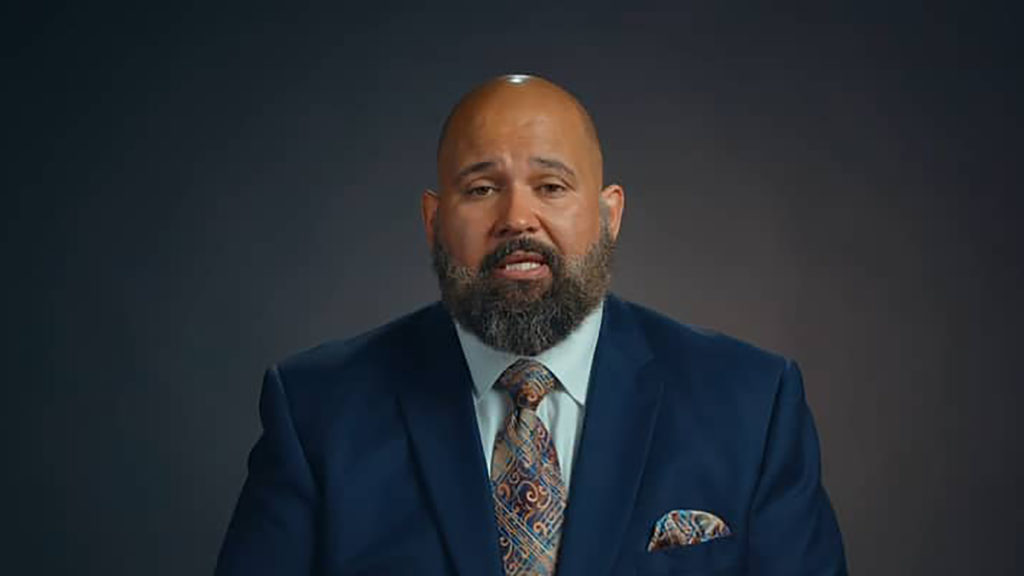Amy Jones first experienced symptoms of depression during her first year of college.
“I moved away from home and into a dorm room with someone I had never met,” she said. “Suddenly I was dealing with new people and new situations every day, and I was anxious all the time.”
At first, Jones assumed she was homesick and thought the anxiety would pass once she adapted to the pace of college life. However, the feelings not only persisted, they worsened as the semester continued.
“During those months, it was all I could do to drag myself out of bed to go to class,” she said. “I could hardly concentrate on the professor’s words or the material, and as soon as class was over, I would go back to my room and back to bed.”
At one point, Jones was sleeping 14–16 hours each day — definitely not a typical college student’s schedule. She lost weight and her academic work suffered. The high school honors student was struggling in her classes, which magnified her feelings of worthlessness.
“I began to think about having a car ‘accident,’ thinking that if I got hurt, I would have an excuse to just lie around and feel sorry for myself,” she said. Once she even considered ending her life. Not once did she consider counseling.
“I was young and emotionally immature, and I thought I should be able to handle everything on my own,” she said. “The thought of admitting my weaknesses to anyone seemed just one more failure to me.”
Years later, Jones is not sure what brought her out of her depression. The semester break helped, she thinks, as did making some friends in the dorm. She passed all of her classes, which may have helped too.
“I realize now that my problem was situational depression. Starting college was a major transition, but once I adjusted to campus life I began to feel better,” she said.
Jones experienced many other life transitions in the years that followed. She finished college, got a job, married and became a mom. She remembers experiencing some emotional lows during those years, but nothing that lasted for more than a few weeks. That changed in 2006.
“At first, I just had a sense of impending doom that wouldn’t go away,” she said. “I lay awake at night, worried that I might die or that my parents might die. I prayed, asking God to take the fear away, but I couldn’t find any peace.”
Whereas before, Jones had sought escape by sleeping, now sleep was elusive. Night after night, she lay awake crying as her husband and children slept. During the day, she had trouble concentrating on her work, and in the evenings, she was irritable and withdrawn.
“I just wanted to be alone. I felt drained, lifeless, like what I needed to do required more energy than I could muster,” she said. “On some level, I knew my thinking was wrong, but I felt powerless to think logically and overcome the negative thoughts that constantly filled my head.”
The final straw was Mother’s Day, when the pastor’s sermon on the Proverbs 31 woman left her feeling so overwhelmed with guilt that she cried all the way home from church. Jones’ husband insisted that waiting this out was no longer an option, and he encouraged her to make an appointment with a Christian therapist who uses cognitive behavioral therapy to help adults dealing with depression.
“During our first meeting, I sat on the couch and cried,” Jones said. “I was so embarrassed, and I felt so weak. But I went back the next week.”
As part of her treatment plan, the counselor suggested a brief reading list, including Scripture and research-based self-help books. He also recommended that Jones speak with her physician about short-term medication therapy. During the months that followed, the counselor helped Jones recognize both her depression triggers and issues in her life that needed to be handled differently. They discussed strategies for coping with stressful situations, including the importance of a healthy diet and regular exercise, and Jones learned the importance of positive self-talk to counter negative thoughts.
“Not only did I feel better after a few weeks of therapy, but I felt healthier — emotionally, physically and spiritually,” Jones said. “I had a more positive outlook on life than I had had in a long time.”
In the years since her treatment ended, Jones has experienced emotional lows, just like everyone else, she said. The difference is that when feelings of hopelessness or worthlessness begin to emerge, she counters them by re-evaluating the situation and looking for the positives instead of focusing on the negatives.
“I still tend to be a glass-half-empty person, but counseling helped me realize that there is still something valuable in the glass.”
Editor’s Note — Name changed for privacy reasons.






Share with others: